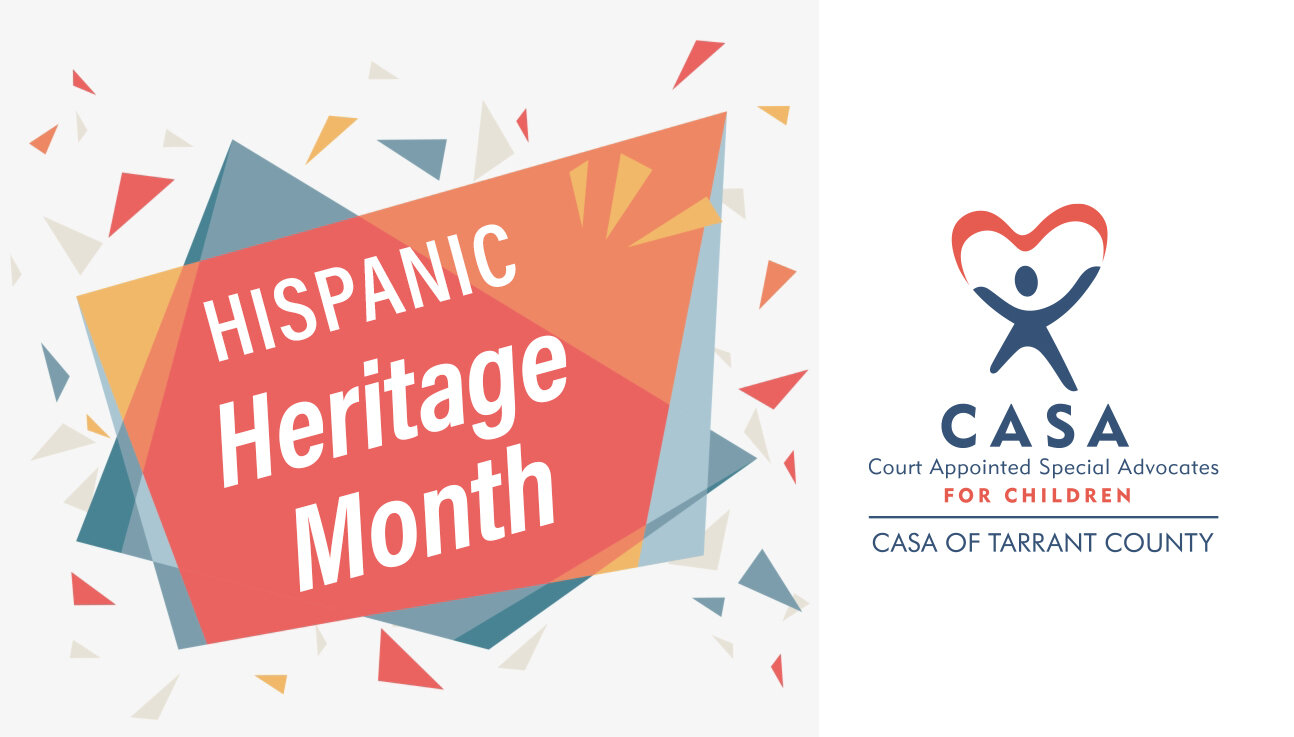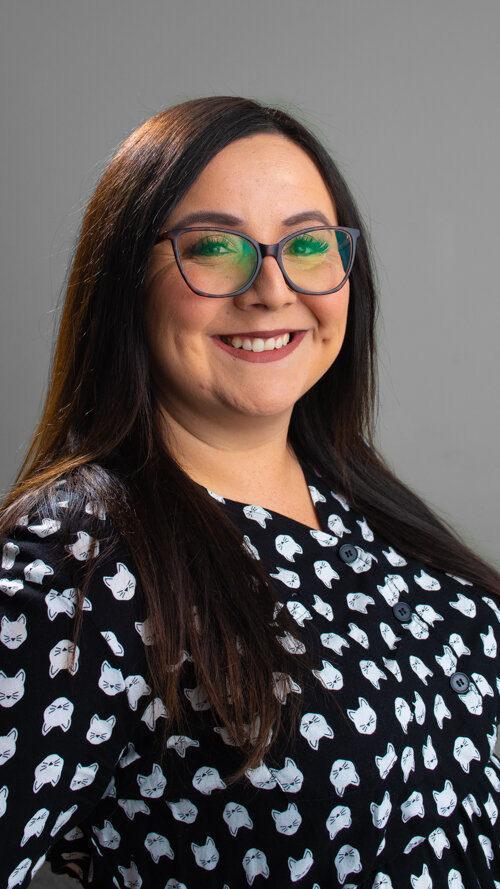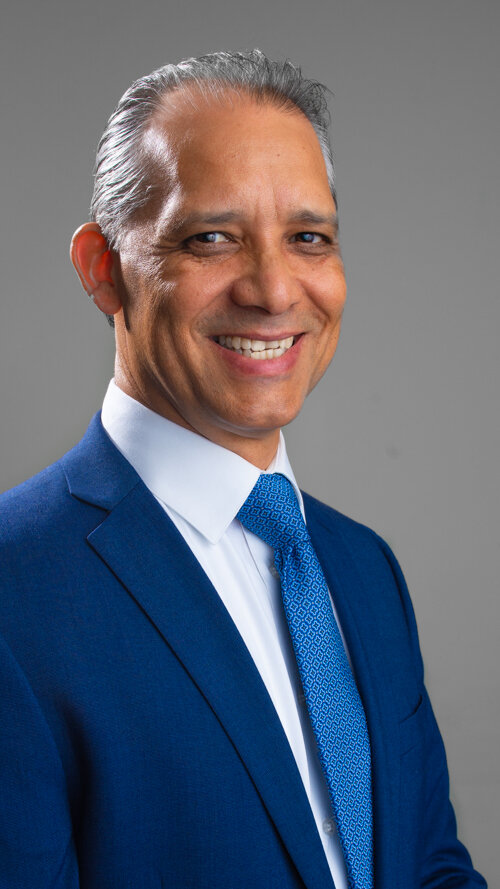CASA Latinx Advocates are Needed!
Written by CASA of Tarrant County Child Advocacy Specialist Luisana D. Sanchez
Growing up as a first generation Mexican American, there were a few obstacles that my family and I had to navigate through over the years. There was a language barrier in the beginning to figuring out the college system when it came time for me to choose a university. Thankfully, my family was supportive and patient when difficult situations arose. I truly believe I would not be were I am if it were not for the kind teachers and mentors I met along the way that helped me succeed. One mentor always has stood out to me, not only because of their help but their resemblance to me and my culture. She was a young Latina woman who also came from an immigrant family. She and her family faced the same barriers my family and I were going through and succeeded. She was able to give back to her community in advocating for my family and I’s best interest.
Representation matters in Advocacy here at CASA of Tarrant County. As a Latina Child Advocacy Specialist, I have seen firsthand how important it is for a child to have an Advocate they can relate to and confide in their first language, Spanish. Children going through the foster care system are already traumatized being separated from their family, it can make it more difficult when there is a language barrier and strangers who do not resemble their own culture. Being a Latinx Advocate can bring comfort to a child while helping them understand their new situation. While advocating for the child’s best interest, the role of the Advocate plays an important part for the parents involved. Latinx Advocates have assisted parents in navigating the foster care system to succeed in what is needed to reunite families. CASA Latinx Advocates are needed to help speak up for the 42 percent of Hispanic children in the Texas child welfare system. Stepping up and being a bilingual voice for a Hispanic family can be crucial for their success during a traumatic, difficult time. During this Hispanic Heritage Month, please consider being a CASA Volunteer.
Hispanic/Latinx Community Info Session Recap
Written by CASA of Tarrant County Child Advocacy Supervisor Jaime Hernandez
On Thursday, August 13th, CASA of Tarrant County conducted a very special information session focused specifically on reaching the Hispanic/Latinx community in our area. Through well-planned and targeted media advertising, and through reaching out to many partners in our networks, we were able to host a number of members of the Hispanic/Latinx community to learn more about CASA. CASA staff members, as well as some current volunteer advocates, worked together to enthusiastically share the mission of CASA with those members of the Hispanic community who attended virtually. Attendees heard from CASA staff about the need our community has for volunteers to be a voice for children who are in foster care. More specifically, they heard about the need for advocates for children to identify and connect with their common Hispanic heritage and even their language.
Today more than 40% of children in the Texas foster care system are of Hispanic/Latinx background, but less than 6% of volunteer advocates identify as Hispanic/Latinx. To make matters worse, due to the lack of sufficient foster homes in our area, children of Hispanic decent that enter the foster care system are often placed in homes that do not match the child’s cultural heritage. Considering this, having CASAs that match the child’s ethnic and cultural background becomes even more critical.
During the information session, CASA Volunteer, Veronica Garza, shared her experience and the significance of being able to connect culturally with her CASA child. She said that being able to talk with her child in Spanish has been crucial to advocating for her best interest. Staff members, Luisana Sanchez and Mayra Guzman, explained to attendees that CASA’s goal is to provide every child in foster care the kind of advocate that can enhance the child’s opportunities to succeed once they return to their family, are adopted or age out of the system. Additionally, CASA Volunteer, Jannet Alarcon, shared her experience with the children on her case. Jannet highlighted that being able to effectively discern the children’s needs by understanding and identifying with their cultural context has made a difference in her ability to advocate for them. One important aspect of this particular information session was the emphasis on the need for bilingual advocates who could communicate with the child as well as the family. Children that enter foster care who primarily speak Spanish can be put at a disadvantage. Having an advocate that can bridge that gap in communication surely makes a significant difference in the life of the child and the family.
At the conclusion of the presentation, attendees heard from staff members who shared the specifics of what it takes to become a CASA and several individuals promptly expressed their willingness to join the CASA ranks! “¡Podemos hacer más!” is a phrase in Spanish that means “We can do more!” Certainly, we witnessed that there are many people in our Hispanic community that resonate with this phrase and are willing to be part of doing more to help children in foster care.



